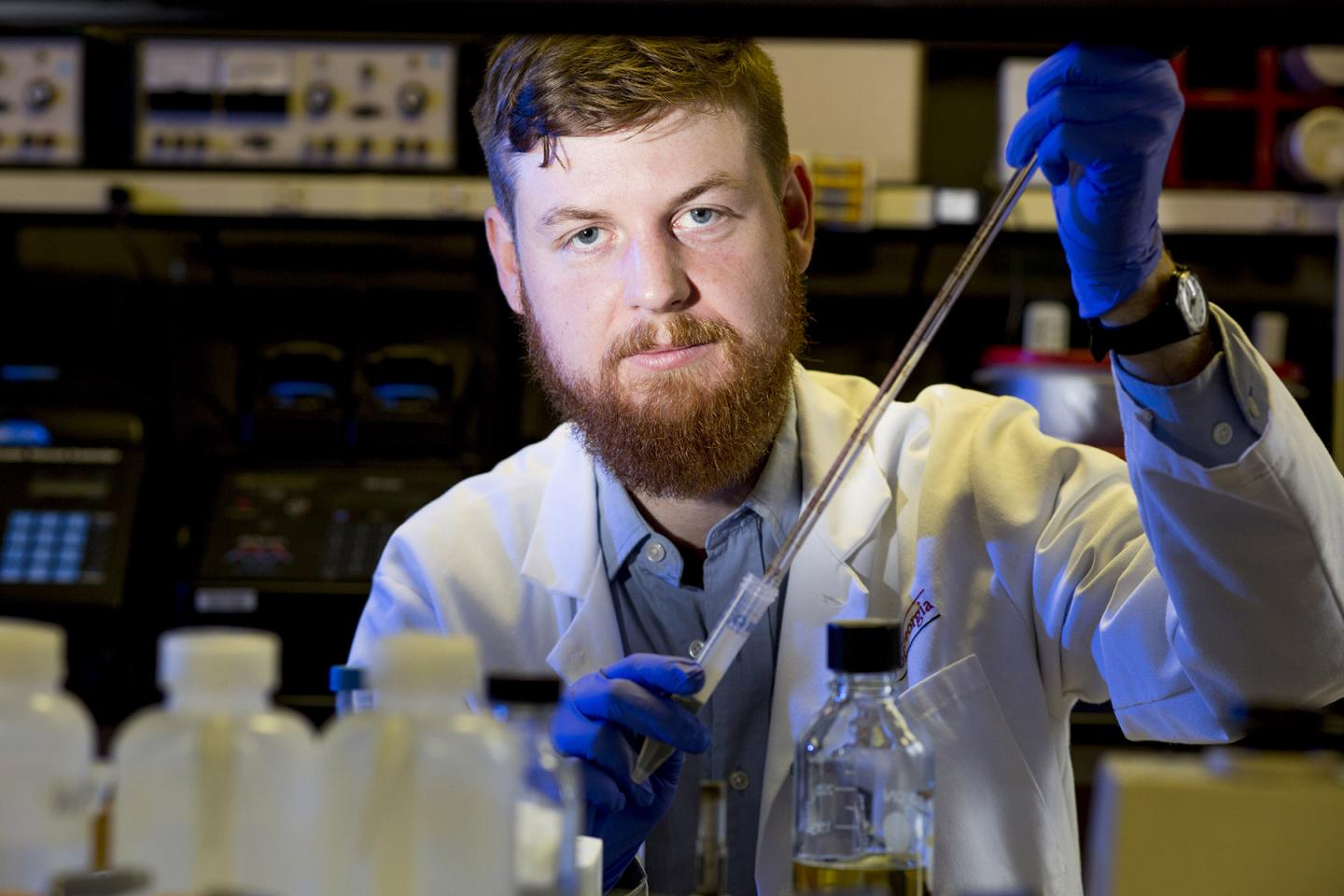
IMAGE: Stephen LaVoie at the University of Georgia studies inorganic mercury, which is known to cause neurological, kidney and autoimmune diseases.
Credit: Dorothy Kozlowski/University of Georgia
Athens, Ga. – University of Georgia research has found that inorganic mercury, which was previously thought to be a less harmful form of the toxic metal, is very damaging to key cell processes.
This study is the first to compare the effects of inorganic and organic mercury compounds at the biochemical, physiological and proteomic levels in any model organism, according to the study's lead author Stephen LaVoie, a microbiology doctoral student. Published in December in the Journal of Biological Inorganic Chemistry, the research looked at how inorganic and organic mercury affected specific molecular processes.
Inorganic mercury from the ore cinnabar was used for centuries against infections; in modern times, humans synthesized organic mercurials as antimicrobials, such as merthiolate.
"Today, most human exposure to inorganic mercury is from dental fillings, and organic mercury exposure is from methylmercury in fish," said study co-author Anne Summers, a microbiology professor in the Franklin College of Arts and Sciences.
Organic mercury exposure is associated with neurological disease, LaVoie explained, whereas inorganic mercury is known to cause neurological, kidney and autoimmune diseases. However, the molecular basis for their distinct toxicity profiles was not understood.
Owing to concern about fish consumption, most research has emphasized organic mercury, assuming it was more toxic, LaVoie said. But comparing them on key cellular processes, he found that inorganic mercury "caused more damage at lower concentrations than organic mercury."
For his study, LaVoie used a common lab strain of E. coli bacteria as a model cellular system. He exposed growing cells to mercury compounds and measured their reactive sulfur called thiols–essential metals and proteins that naturally bind essential metals via amino acid thiols.
"We used a fluorescent probe to detect thiols," LaVoie said. After mercury exposure the thiols decreased more with inorganic than organic mercury. Inorganic mercury was much more efficient at removing iron from iron-dependent proteins than the best organic mercury compound tested.
"As fellow oxygen-breathing creatures, it's important to know that inorganic mercury is more potent than organic mercury in disrupting protein-iron centers such as those we have in our own cells, " Summers said.
"More is being learned about the bacteria in and on our bodies," LaVoie said. "What we ingest affects them, too, and their health affects our health."
###
Future work will examine the mercury resistance genes that many bacteria have and how these genes help spread antibiotic resistance genes.
Co-authors of the paper include Darin M. Cowart, Michael K. Johnson and Robert A. Scott of the University of Georgia, Daphne T. Mapolelo of the University of Botswana, and Benjamin J. Polacco and Susan M. Miller of the University of California, San Francisco.
This work was supported by DOE awards ER64408 and ER65286 to AOS and ER64409 and ER65195 to SMM and NIH award GM62524 to MKJ.
To read the full study, "Organic and inorganic mercurials have distinct effects on cellular thiols, metal homeostasis, and Fe-binding proteins in Escherichia coli," visit http://link.springer.com/article/10.1007%2Fs00775-015-1303-1.





